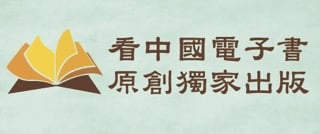虽然如此有权力,中国统治者被一个去世的冤魂吓着了。居然违反不论以前功过,国葬祭奠死去领导人的传统。这种做法可能暂时把赵紫阳排除在共产党的名人榜之外。长远来讲,中国的人民必将恢复一个比较诚实的历史。
1989年以后,被废黜的赵紫阳默默无闻地幽居在北京。但是他留下的市场改革的伟大贡献却彻底地改变了中国,解放了被约束的经济能量,为几十年的发展提供了动力,使得几千万人摆脱了贫困。
中国官方的课本上把这些改革都归功于邓小平。邓是赵的早期指导者,后期的迫害者。但是付出了相当的政治风险和个人牺牲的是赵紫阳,自当省领导的60年代、70年代到作为总理的80年代,策划和实施了这些改革。
在相当一部分的中国人至今还从事的农业工作中,赵领导了解散失败的愚蠢的人民公社系统,代之以自留地和多产多得的经济政策。随后,他开始了对工业的改革,放松了政府对企业的管制,推广了沿海的经济特区,这些最终成了中国长期出口增长的主要动力。
赵紫阳还具有认识到经济上解放必须由政治上的解放来配合的远见:更多的民主,宽松一点的言论自由和加强法制。这些见解使他失去了邓小平的支持,在他反对调兵镇压天安门的学生时,他被废黜了。
1989年高层斗争的结果:务实的自由经济和苏联式的政治集权统治不良结合的模式从此成了官方奉行的教条。因此对赵紫阳的记忆成为当局如此的尴尬。只有当政治自由回归中国的时候,赵紫阳才能得到他应有的公正。
原文:
The New York Times:
China's lost leader
Friday, January 21, 2005
Few figures have played a larger role in shaping today's China, particularly its most positive features, than Zhao Ziyang, the former Communist Party leader who died Monday after more than 15 years of house arrest. In trying to treat his death as virtually a state secret, China's current leaders reveal more than they intend about their own profound feelings of political insecurity..Powerful as they are, China's rulers have let themselves be spooked by a ghost, even to the point of defying the tradition of granting full official funeral honors to ranking former leaders, regardless of ideological differences. It may be possible to airbrush Zhao temporarily out of official Communist iconography. In the long term, China's people will surely reclaim a more honest history..Zhao lived quietly and obscurely after being purged during the Tiananmen Square upheaval of 1989. But his great legacy, the market-based reforms of which he was the principal architect, have fundamentally reshaped China, liberating pent-up economic energy, powering decades of growth and lifting hundreds of millions of people out of poverty..Official history books now credit those reforms to Deng Xiaoping, Zhao's early mentor and later persecutor. Yet it was Zhao, at considerable political risk and personal cost, who largely designed them and put them into effect, first as a provincial leader in the 1960s and 1970s, and then nationally, as prime minister and party leader in the 1980s..In agriculture, where most Chinese still work, he led the way in dismantling the failed and stultifying commune system, replacing it with private land plots and economic rewards for increased production. Then he moved on to industry, loosening state controls and promoting the coastal special economic zones that became the primary engines of China's long export-led boom..Zhao also had the long-term vision to recognize that economic liberalization would need to be complemented by political liberalization: greater democracy, freer speech and the growing rule of law. Those views cost him Deng's support and led to his ouster when he argued against sending troops against the students in Tiananmen Square. .The outcome of that 1989 power struggle, a model that uneasily joins freewheeling economic pragmatism to Soviet-style political dictatorship, has been official orthodoxy ever since. That's what makes Zhao's memory so inconvenient. Only when political freedom revives in China will he be given his due..
- 关键字搜索:
- 纽约
看完这篇文章觉得














排序